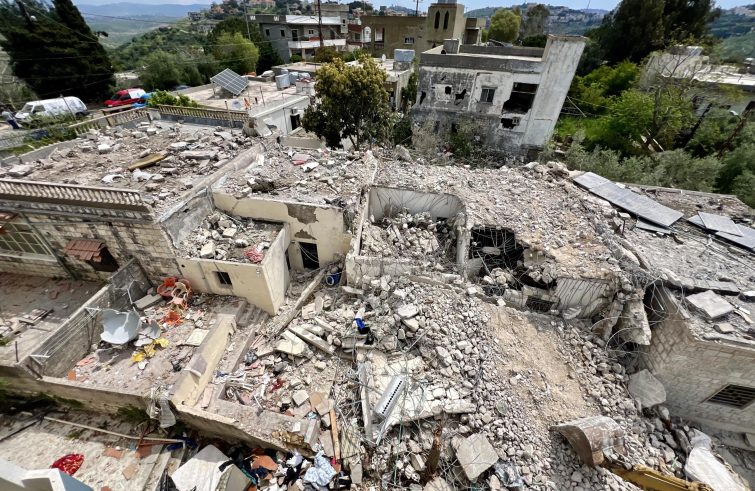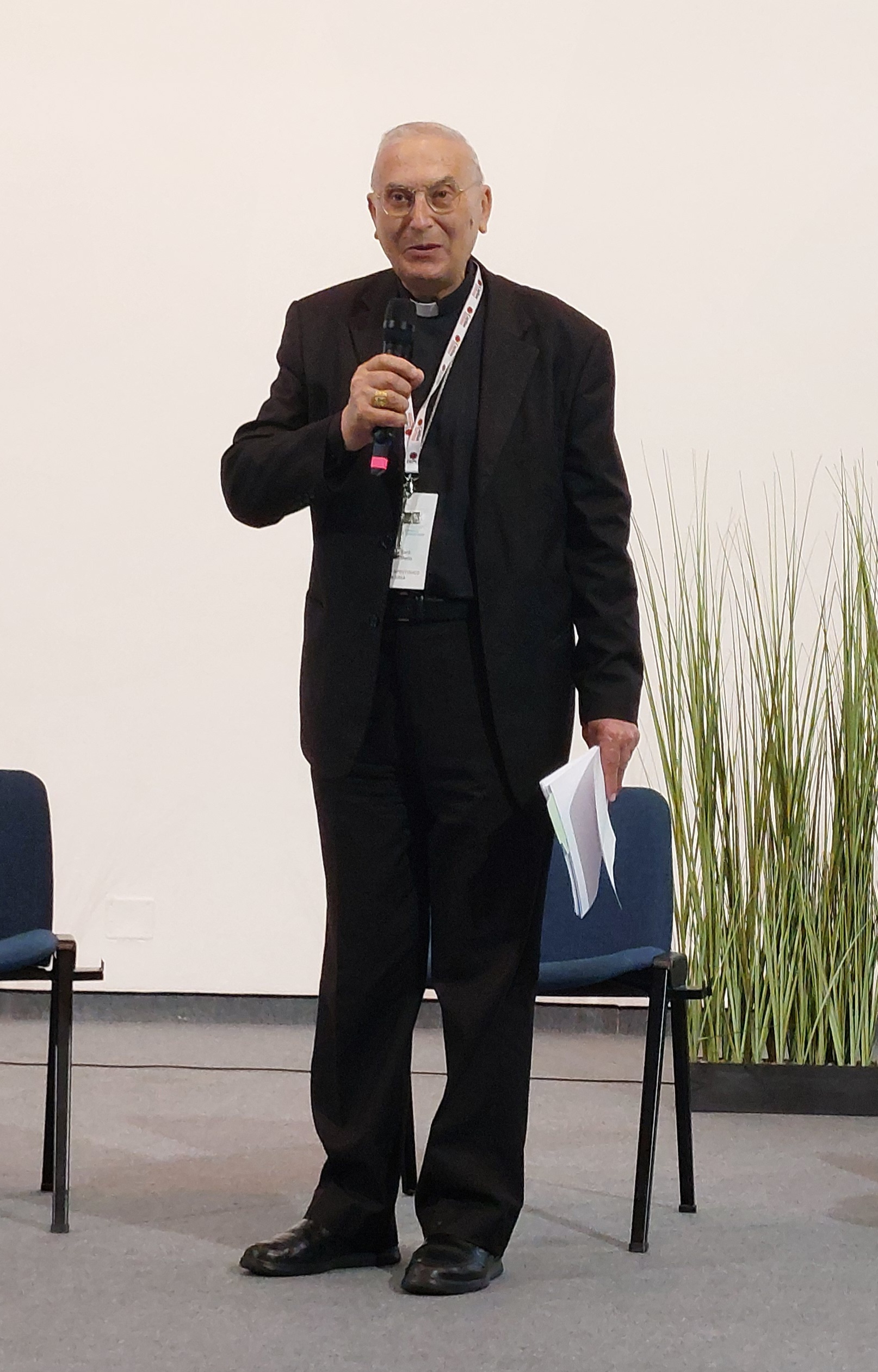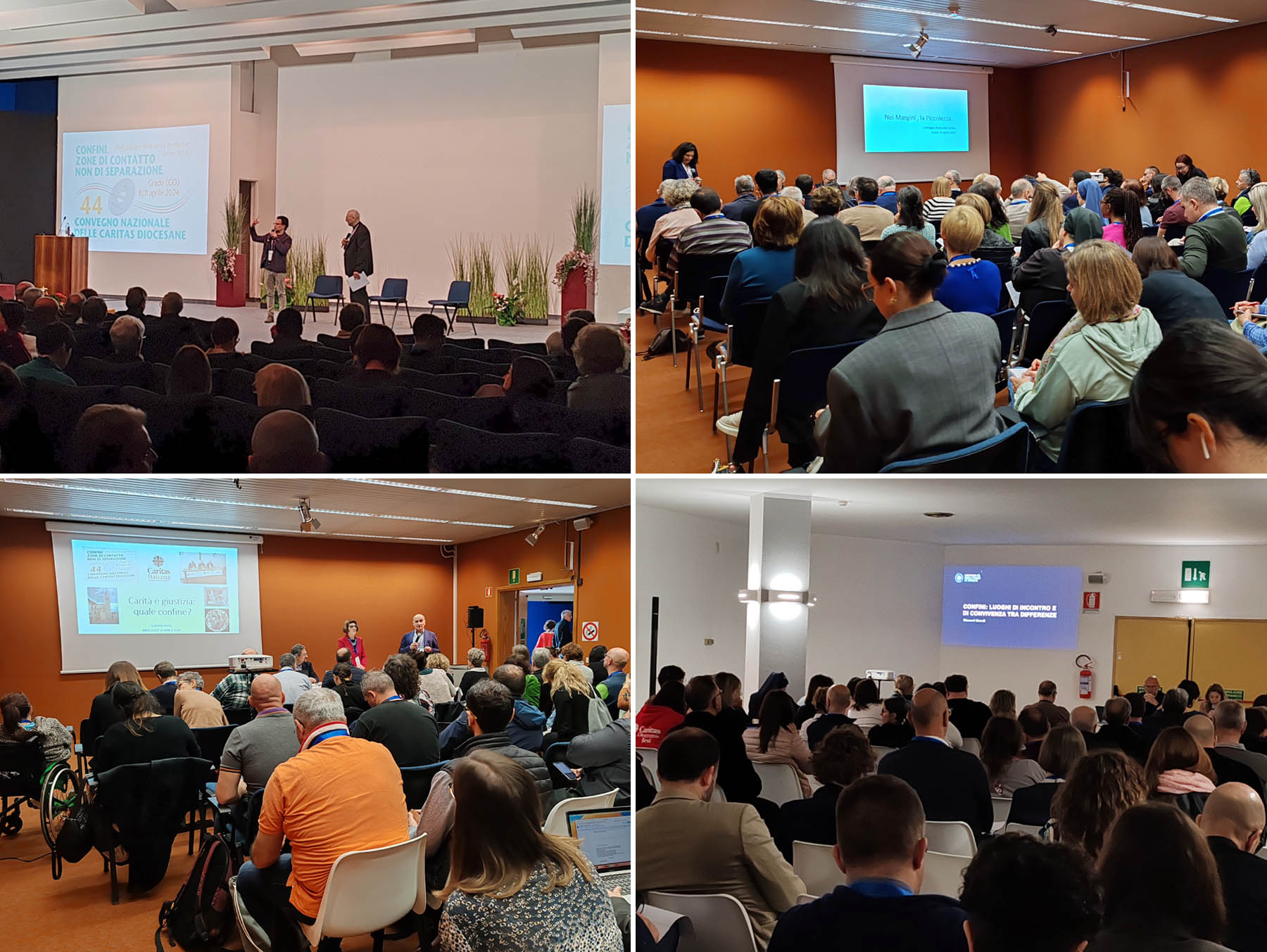
“Syria has fallen out of the news, now it’s all about Gaza and Ukraine. We have been forgotten by the news and by the international community. But the bombs continue to fall on us.” Cardinal Mario Zenari, Apostolic Nuncio to Syria since 2008, speaks frankly and without mincing words. He is in Grado, Italy, attending the 44th National Conference of Diocesan Caritas organisations, with 600 delegates from across Italy. During one of the four plenary sessions this morning, he outlined the figures of a country devastated by conflict and poverty (on 15 March the conflict entered its 14th year), with 16.7 million people (three quarters of the population) surviving only thanks to humanitarian aid. Ninety percent of the population lives below the poverty line. More than half a million people have died (including 29,000 children) and 12 million have fled, including 7 million internally displaced persons. He points to the sad exodus of the Christian minority (including Orthodox Christians): they numbered 2 million before the war, but now only 500,000 remain. In Aleppo alone there were 150,000 Christians, now there are less than 30,000. These are ancient and apostolic churches, which are experiencing the emigration of people, often highly qualified, who are unlikely to return. About 500 Syrian Christians leave Syria every day, mainly for Germany or Canada. “What hurts us most is to see Christians leaving,” he says. “These churches are dying. It’s as though one more bomb had been dropped. I am sure that sooner or later Christian believers will return, perhaps from other countries such as Latin America, but they will not be the same believers who practice the ancient rituals.”
 To date, Syria’s Christian minority has suffered no actual persecution and enjoys freedom of worship. Christians are allowed to build churches and practise their religion freely. This is partly because Bashar al-Assad’s own family, which has ruled for some fifty years, belongs to a minority group (Alawites), but also because, as Cardinal Zenari points out, “Syrian Muslims give priority to religion and show great respect for the ‘People of the Book’, that is, Jews and Christians. There is, however, a quid pro quo: the churches are granted freedom but they are not allowed to express dissent against the government. They are obliged to support it in order to survive”. The only violent incidents have been the disappearance of some priests, including Jesuit Father Paolo Dall’Oglio, founder of Deir Mar Musa al-Habashi, who was kidnapped in 2013, and the desecration of altars and other sacred symbols.
To date, Syria’s Christian minority has suffered no actual persecution and enjoys freedom of worship. Christians are allowed to build churches and practise their religion freely. This is partly because Bashar al-Assad’s own family, which has ruled for some fifty years, belongs to a minority group (Alawites), but also because, as Cardinal Zenari points out, “Syrian Muslims give priority to religion and show great respect for the ‘People of the Book’, that is, Jews and Christians. There is, however, a quid pro quo: the churches are granted freedom but they are not allowed to express dissent against the government. They are obliged to support it in order to survive”. The only violent incidents have been the disappearance of some priests, including Jesuit Father Paolo Dall’Oglio, founder of Deir Mar Musa al-Habashi, who was kidnapped in 2013, and the desecration of altars and other sacred symbols.
“But Christians were never the target of bloodshed.
As for the internal conflict – which flared up after the Arab Spring in 2011 – “five foreign armies are currently stationed on Syrian territory: Russia, the US, Turkey, Iran and Hezbollah. Then there are the Israeli strikes. They used to carry out air raids only at night, but now they strike at all hours and with great precision. The government doesn’t have the strength to keep these armies at bay, but the situation is serious, it’s no joke,” he says. Today, 10 April, the Israeli Defence Forces carried out an air raid on a “military infrastructure” of the Lebanese Hezbollah group in Syria. A few weeks ago, Israel attacked the Iranian consulate in Damascus, killing seven Islamic Revolutionary Guard Corps commanders and prompting the Islamic Republic to threaten retaliation. In recent days, eight members of a pro-Iranian militia were stabbed to death in the town of al-Mayadin in eastern Syria; ISIS has been identified as the likely perpetrator of the attack.
“My fear is that if things continue like this, there will be an escalation at the international level. Israel has launched more than 50 air strikes in Syria since 7 October,” the nuncio told SIR. In his view, “there are three countries that must intervene to find a political solution to the war: Damascus, Washington and Brussels.” “Above all
Europe could do more.
Europeans could help us with their vote in the next elections. Italy, which has a special envoy in Syria, could also play its own special cards.
We need a political solution to the conflict.”













